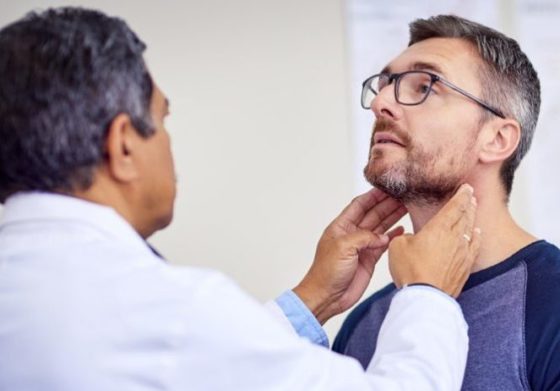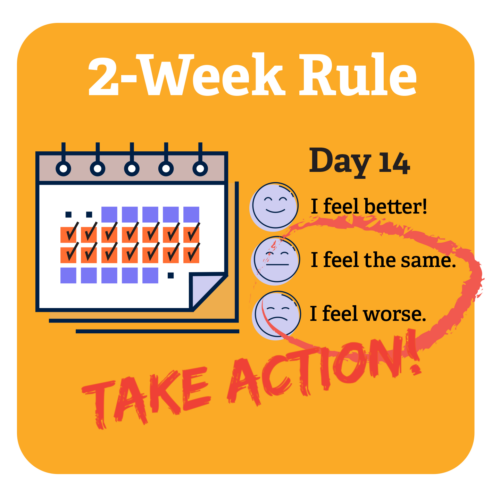Did you know that men are 24 percent less likely than women to have visited a doctor within the past year?
Some common reasons men avoid seeing a doctor include, “I don’t have time,” “There’s probably nothing wrong,” or “I don’t want to hear what I might be told.”
Unfortunately, not seeing a doctor won’t make your health problems magically go away. In reality, it will actually make things much more difficult for both you and your doctor, as prolonged diagnosis may lead to fewer treatment options and even lower survival rates.
While many men are taught to perform testicular self-exams to be on the look out for lumps and bumps, they may not be aware of these other important cancer symptoms.
Be aware of these commonly ignored cancer symptoms so you can detect cancer early. You may even save your own life!
- Blood in the stool. Seeing blood in your stool can be scary. However, many people are quick to blame hemorrhoids or constipation. While hemorrhoids are extremely common (roughly 75 percent of the population will get them at some point in their lives), blood in the stool should never be dismissed without seeking medical attention. Blood in a bowel movement is never normal and should always be checked out. Blood in the stool could signal serious problems such as colon cancer, which is becoming increasingly common in people under the age of 50.
- Chronic coughing. Is it the common cold, allergies, the flu, or something more? Everyone gets sick from time to time. But if you develop a cough that lasts two weeks or more and do not have any other typical cold symptoms, it may be a sign of lung cancer or leukemia. Coughing up blood is also a red flag that something needs immediate attention.
- Chronic headaches. If you have no history of migraines and typically do not get headaches, a sudden onset of chronic headaches could signal that something is wrong. For Joel Williamson, sudden onset headaches were a sign of lymphoma. Dave McGrath was diagnosed with brain cancer after seeing a doctor for his headaches and double vision. If you have already been diagnosed with migraines and your treatment is working, there likely isn’t any reason to be concerned. However, if you have never had a problem with headaches and suddenly find yourself desperate for a dark, quiet room, this health change should be discussed with your doctor.
- Difficulty swallowing. Difficulty swallowing can be caused by a simple sore throat, but if it persistent it may be a sign of throat, stomach, or lung cancer. For Andy Waplinger, difficulty swallowing was caused by thyroid cancer. Always use the two-week rule – if it lasts for more than two weeks, it’s time to see a doctor. Even if the difficulty is being caused by a non-cancerous infection, early detection will help you diagnose it and begin treatment so you will feel better, sooner!
- Difficulty urinating. If you are consistently finding it difficult to urinate, or if there is blood in your urine or semen, see a doctor. These symptoms, as well as unexplained erectile dysfunction, can be caused by prostate cancer. Prostate cancer is the second most common cancer among men. The risk is about 1 in 7. Prostate cancer is one of the most treatable malignancies when detected early.
- Excessive bruising. If you are clumsy, it’s probably not too much of a surprise, or concern, if you find a few random bruises here or there. But if you start to notice bruises popping up all the time, especially in bizarre places such as your hands or fingers, it could be something serious. Excessive bruising can be a sign of anemia, or more seriously, leukemia.
- Frequent fevers or infections. Do you find yourself taking crazy amounts of pain relievers or fever reducers? Besides likely doing some serious damage to your liver, you are not helping your body by treating something without determining the cause first. Frequent fevers and infections can be an early sign of leukemia or lymphoma, which weaken the immune system and make you more susceptible to illness. Be on the lookout for flu-like symptoms that just won’t go away.
- Noticeable skin changes. Did you know that men over the age of 50 are about twice as likely as women to develop, and die from, skin cancer? According to the Skin Cancer Foundation, young men account for 40 percent of melanoma cases, but 60 percent of melanoma deaths. Why is this? Men typically spend more time in the sun than women and are more likely to ditch the sunscreen. Common skin cancer areas, such as the scalp and ears, also see more sun on men than they tend to on women. Be sure to learn the ABCDEs of Melanoma and perform routine self-exams every month, taking note of changes or concerns.
- Persistent fatigue. Just because you feel tired doesn’t mean you have cancer. That being said, you should see a doctor if you find yourself feeling absolutely exhausted every day, even after a good night’s sleep, for more than two weeks. There are many things that can cause you to feel tired. Some of the most common medical causes of fatigue are anemia and depression. However, cancers such as leukemia and lymphoma often present as a change in energy level. Try to remember how you feel when you feel great, this way you will be able to easily recognize changes in your health.
- Sores or pain in the mouth. If you get a cold sore from time to time that heals after treatment, there is nothing to worry about. The concern comes when you notice a sore that doesn’t heal, or any pain in the mouth that sticks around for more than two weeks. It’s also important to pay attention to swelling, numbness, or pain in the jaw. Men who smoke or use chewing tobacco have an increased risk of developing mouth cancer. Be sure to perform an oral self-exam each month, especially if you use tobacco products, are a heavy drinker, or have a history of oral cancer in your family.
- Stomach pain or nausea. Upset stomachs are so common. More often than not, you probably ate something your body didn’t agree with, are experiencing more stress than usual, or have a gastrointestinal disorder such as IBS. However, if you notice sudden and persistent stomach cramps that last more than two weeks, or are experiencing nausea that just won’t go away, it’s time to see a doctor. Stomach pain and nausea can be signs of leukemia or esophageal, liver, pancreatic, or colorectal cancer.
- Testicular changes. Are you paying attention to your testicles? Just how women are taught to be familiar with the look and feel of their breasts, men should take note of the size, shape, and weight of their testicles. (Learn how to do a testicular self-exam.) If you notice that they feel swollen and heavy or discover a lump, it’s time to see a doctor. These symptoms could indicate testicular cancer. Testicular cancer can occur at any age, but it is most common in young and middle-aged men. Testicular cancer can be treated successfully if it is detected early.
- Unexplained weight loss. Weight loss is often overlooked because it is seen as a good change, not a concerning one. Both sexes are more likely to see a doctor for weight gain than they are for weight loss. However, weight loss, as well as sudden or unusual changes in appetite, can be a symptom of cancer. Esophageal, pancreatic, liver, and colon cancer can all cause weight loss, as well as leukemia or lymphoma. If you find yourself staring at the scale in confusion, talk to your doctor about it.
The most important takeaway from these symptoms is that any health change can be a symptom of cancer. In fact, a subtle and persistent health change that lasts two weeks or more is the most common cancer symptom.
When it comes to early cancer detection, your best chance is you.







